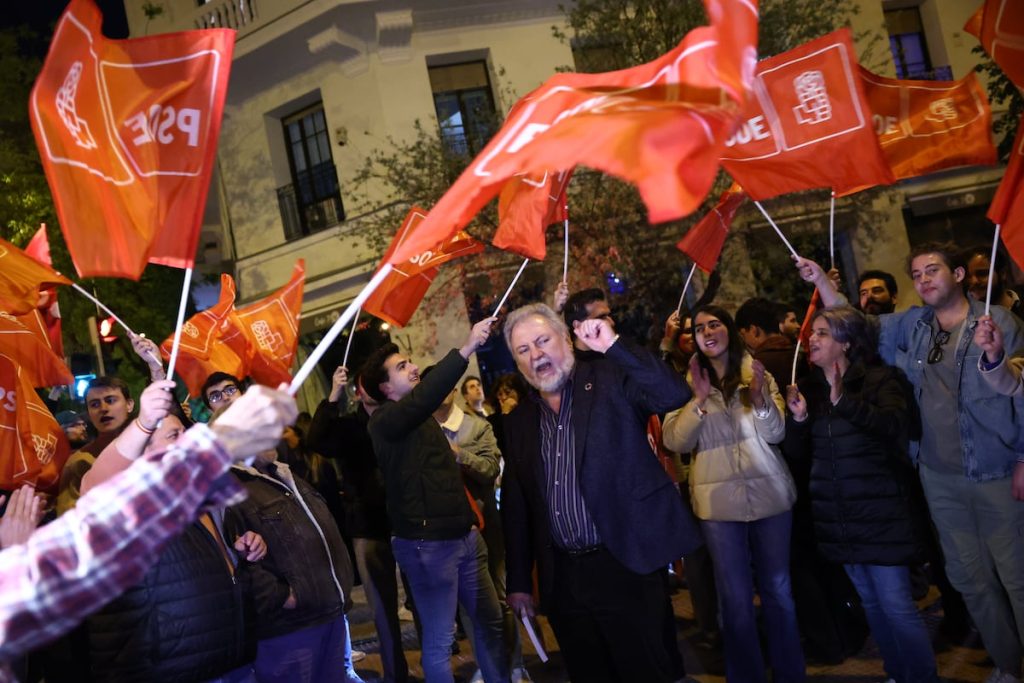The earthquake with an epicenter at the La Moncloa Palace that shook Spanish politics shortly after seven in the evening left the PSOE stunned and in absolute disarray. The uncertainty is widespread throughout the ranks of the main government party, from the base to the very top. A senior official of Ferraz summarized Pedro Sánchez’s decision to take some time and announce in a letter to the citizens, unexpectedly, that he is considering resigning on Monday. This decision would open up a scenario for which there is no clear replacement, something that the barons of the PSOE do not contemplate. The hyper-leadership of Sánchez has prevented a succession debate from being on the table, especially in the midst of the Catalan election campaign, upcoming European elections on June 9th, and in a context of significant polarization and tension. Some party members express hope that he doesn’t resign, highlighting the positive impact of his leadership in recent years.
Following Sanchez’s announcement, the need to defend him against continuous attacks, even targeting his family, has spread within the party. Public and private displays of affection and support have been constant. Party members, including the most critical sector, have rallied around Sánchez. The solidarity extended to him emphasizes the need to counter the attacks and defend his leadership. Despite disagreements on specific issues, prominent figures within the party have expressed support for Sánchez and condemned the personal attacks against him and his family. A group of fifty militants gathered in front of the party’s headquarters to show their support for the party leader and head of the government.
There is uncertainty within the party about what to expect from Sanchez on Monday. There are speculations that he may resign as President of the Government and Secretary-General of the PSOE. The party will proceed with its Federal Committee on Saturday, even if Sánchez is absent. The committee needs to approve lists for the upcoming European elections on June 9th. The prevailing sentiment within the party is one of frustration with the ongoing attacks from opposition parties, particularly from the PP, and the need to defend themselves against the wave of aggression targeting their offices and public officials.
The PSOE is facing a challenging time, with tensions running high and calls for unity becoming more urgent. Despite the uncertainties about Sanchez’s future, party members are emphasizing the need to stand together and defend their values and principles. The attacks on Sanchez and his family are seen as part of a broader strategy to undermine progressive forces in Spain. The party is gearing up for crucial elections and needs to maintain stability and unity to navigate through this turbulent period.
Sanchez’s planned participation in campaign events for the Catalan elections has been disrupted by the recent developments. Party members from different regions have expressed their solidarity with Sanchez and underscored the importance of standing firm against the attacks targeting him. The upcoming Federal Committee meeting is seen as an opportunity to reaffirm support for the party leader and chart a path forward amidst the current challenges facing the PSOE.
In conclusion, the turmoil within the PSOE reflects broader political tensions in Spain. The party is grappling with internal divisions and external pressures while trying to maintain cohesion and focus on upcoming elections. The support for Sanchez from various party members highlights the solidarity and determination to defend their values and principles against political attacks. As the party navigates through this crisis, the need for unity and resilience becomes more critical than ever to withstand the challenges ahead.


